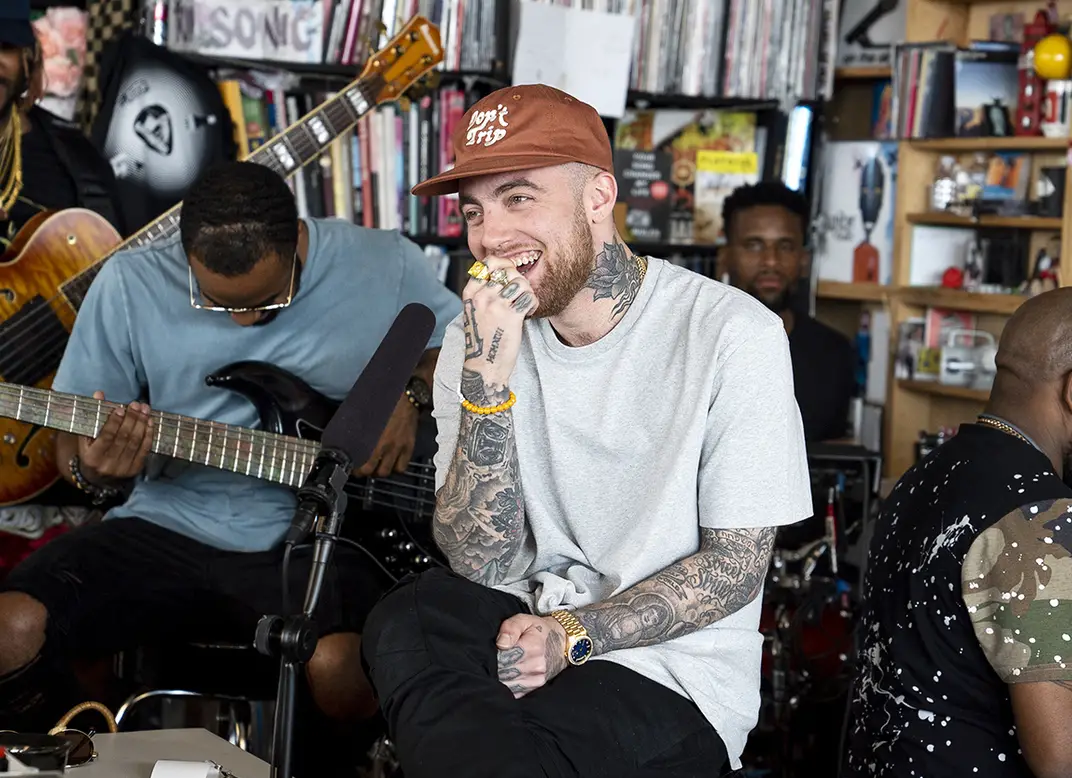With artists like Ariana Grande and Mariah Carey speaking out against the Grammys and their controversial award system, people everywhere have started to question what the basis is for their selection process.
Decades ago, when the Grammys first aired, they celebrated the most prestigious music in the industry. To win a Grammy was the highest honor a musician could ever receive, and it became the defining point of their career success. Every year, millions of people would eagerly tune in to watch musicians perform and win iconic golden gramophone trophies — hence the name Grammys.
Before and after the show, all the big-name celebrities would attend extravagant parties and walk the red carpet with outfits that are still talked about to this day, such as Jennifer Lopez’s plunging green Versace dress that inspired the creation of Google Images. While these luxurious parties still occur, there is less praise for the artists’ performances. And now, instead of commenting on the music, the public more often focuses on expressing their outrage at the artists who win the awards.
In the last month of 2013, Beyoncé released her self-title album on iTunes without any prior promotion. After the album was ranked No. 1 in the music service for over a week, the artist sold 800,000 copies in just three days, breaking the record for most albums sold on the service at a time.
The album’s popular single, “Drunk in Love,” soon became the public’s anthem for the summer of 2014. Fans and non-fans alike admired how Beyoncé’s album garnered so much success despite its lack of promotion. Other artists have copied her technique, in hopes of receiving the same success and admiration that Beyoncé did through her iconic album release.
The Academy members who decide which artists will be nominated for the Grammys gave Beyoncé’s album a well-deserved nomination. Fans grew excited at the thought that Beyoncé was finally going to receive the recognition she deserved for her album’s vocal and musical arrangements. However, almost two years later, fans would be disappointed to learn that the winner would be someone they had least expected.
When Beyoncé lost the album of the year to Beck, an alternative indie folk artist, viewers nationwide decried the decision. After the winner was announced, audience members appeared shocked, probably because they realized how deserving and how impactful Beyoncé’s album was (and still is) to music.
As Beck approached the stage to receive his award and make his speech to the audience, Kanye West infamously tried to interrupt Beck’s speech, in the same way that he barged in on Taylor Swift’s speech at the 2009 MTV Video Music Awards when she beat Beyoncé for best music video. While Kanye’s enthusiasm for Beyoncé’s music shows no bounds, his actions incited audiences everywhere to question what the Grammys award system is actually based on.
To this day, people still question why Beyoncé lost that particular Grammy, despite the fact that she has several other Grammys from her past two decades in the music industry. People were upset with the outcome because they were unfamiliar with Beck and his music, but it seems unfair that he should reap the consequences of the Grammys’ poor decisions. Beck released an album two years later, and it didn’t receive the attention it deserved, probably because the public was so upset that he stole Beyoncé’s rightfully deserved spotlight.
In a 2018 interview with V Magazine, Mariah Carey reflected on her experience with the Grammys, claiming that she was no longer interested in receiving any more golden trophies. The female artist sensed corruption in the Grammys’ method of selecting winners, noting that the popularity of artists seemed almost to work against them. In an act of defiance against the award show, Carey admitted that, unlike other artists, she does not release her albums based on the Grammys’ awarding timeline. Instead, she releases music when she wants to, when she feels is right and when her fans need it most.
Mariah Carey is certainly not alone in this battle. Pop star Ariana Grande shares similar opinions about the Grammys, especially after she decided not to perform at this year’s show because producers refused to give her the artistic freedom she requested. Grande hoped to perform her newest single, “7 Rings,” during the Grammys, but producers insisted she sing a medley of other songs. Her rebellion against the Grammys then doubled when her late ex-boyfriend and rap artist Mac Miller did not receive a posthumous award for best rap album.
After this year’s Grammys, social media platforms blew up with comments, both good and bad, regarding the show. Most negative responses were sparked by the fact that Mac Miller’s parents were flown out to the show, which led audiences to assume their son would win best rap album for “Swimming,” which was released one month before his tragic death. When it was announced that Cardi B received the award instead, people were upset, as this was Miller’s last chance to win a Grammy.
During the show, the Grammys never — not even once — recognized Miller through either a tribute or statement. So, Miller’s parents were flown to the show just to witness their son not receive any type of recognition for his various musical contributions. Many of Miller’s fans vocalized their disagreement with the Grammys’ decision, including Grande, who made multiple statements on Twitter to demonstrate her disappointment that Miller did not receive the award.
While Cardi B was excited that she won the Grammy for her album “Invasion of Privacy,” she dedicated her award to Miller after finding out that Miller’s parents would’ve wanted her to win if their son did not receive the award. At least somebody recognized the late artist for his talent and dedication to music.
There’s still no clear answer as to why the voting members of the Grammys prefer lesser-known artists, but it can be speculated that they are doing so in an attempt to cast a spotlight on new artists who have less of a following. Or maybe they want to add a shock factor and make the results less predictable.
In turn, people would then talk about the show and share their opinions on social media — which is exactly what the public is doing right now. Bad publicity is still publicity — right?
















